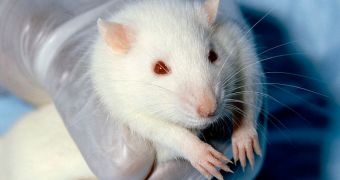According to the conclusions of a new study published in the latest issue of the esteemed journal Proceedings of the National Academy of Sciences (PNAS), it would appear that the exposure to fungicides causes autism, obesity, anxiety and stress in lab rats.
These negative effects can be observed in the rodents' offspring, grandchildren and great grandchildren. The data is very worrying, since these chemicals are used for a variety of agricultural applications, and constantly make their way into our food.
For this investigation, researchers at the University of Texas used the common fungicide vinclozolin. They exposed pregnant rats to the chemical, and then observed their offspring for three generations.
The substance is usually sprayed on both fruits and vegetables, and past investigations have already demonstrated that it plays a role in disrupting human hormones. In the new study, scientists used more vinclozolin than what humans are generally exposed to.
Their purpose was not to figure out the effects the fungicide had on humans, but rather to determine the mechanisms through which it causes its effects in rats. As such, they exposed pregnant rats to “higher than expected” amounts of the stuff, PsychCentral reports.
“We are now in the third human generation since the start of the chemical revolution, since humans have been exposed to these kinds of toxins. There is no doubt that we have been seeing real increases in mental disorders like autism and bipolar disorder,” says David Crews, PhD.
The expert, who holds an appointment at the University of Texas, was also the lead author of the PNAS paper. Though heavily used in the 1980s, vinclozolin is now avoided, since investigators have determined that it has negative side effects on male hormones and sexual development.
In rats, there is no doubt that the chemical causes increased responses to stress, which last for at least three generations. On average, the rodents that were born from the pregnant rats in this study had higher body weights, and displayed increased testosterone levels than past generations.
The new rats also showed significantly less interest in new individuals and environments, a behavior that is usually associated with autism.

 14 DAY TRIAL //
14 DAY TRIAL //